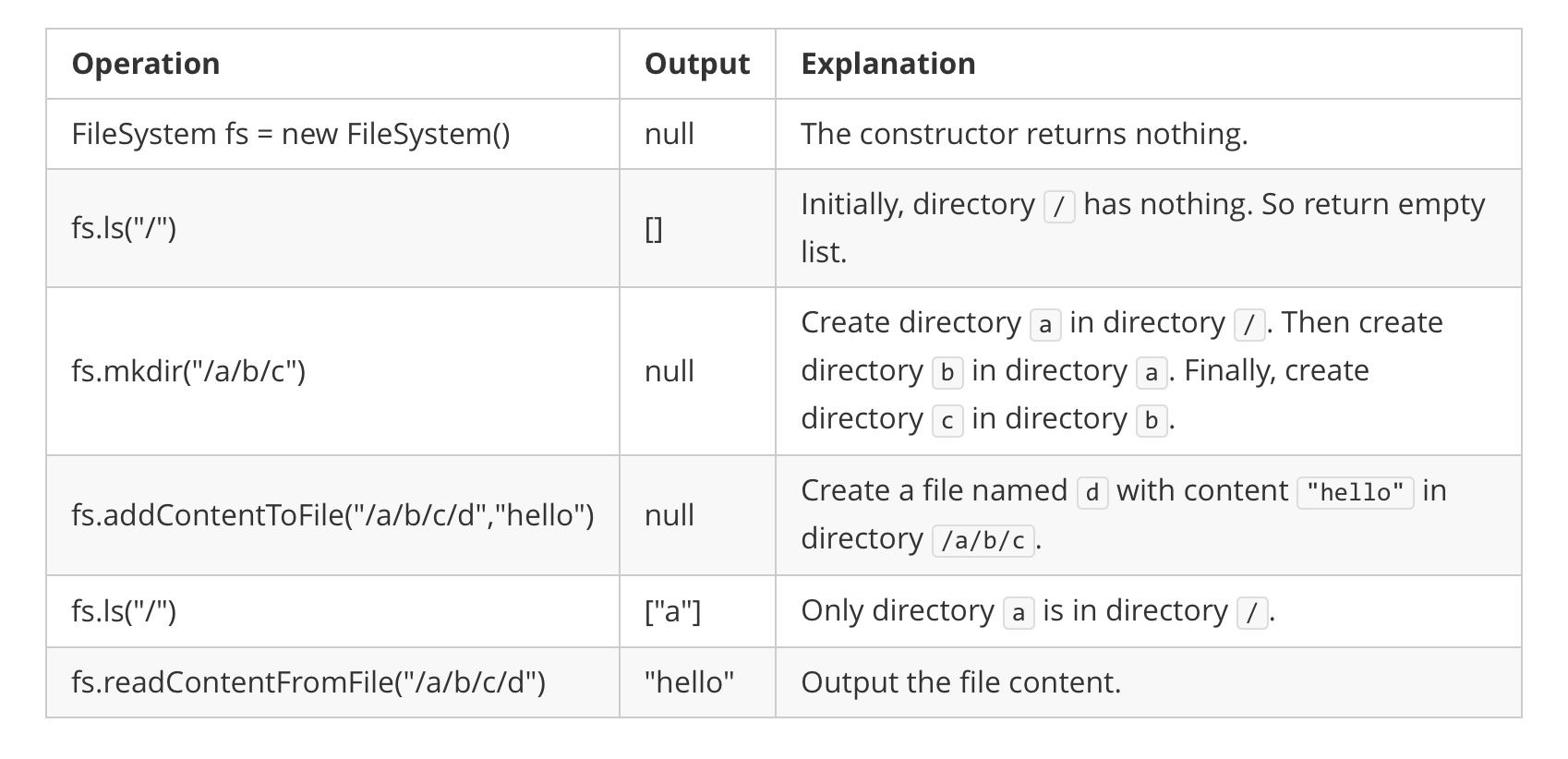Design in memory file system
class TrieNode:
def __init__(self):
self.child = collections.defaultdict(TrieNode)
self.isFile = False
self.content = ""
self.name = ""
class FileSystem:
def __init__(self):
self.root = TrieNode()
def ls(self, path: str) -> List[str]:
res = []
path = path.split('/')[1:]
cur = self.root
if path[0]!='':
for p in path:
cur = cur.child[p]
if cur.isFile:
return [cur.name]
for ch in cur.child:
res.append(ch)
return sorted(res)
def mkdir(self, path: str) -> None:
cur = self.root
paths = path.split('/')[1:]
for p in paths:
cur = cur.child[p]
cur.name = p
def addContentToFile(self, filePath: str, content: str) -> None:
cur =self.root
filePath = filePath.split('/')[1:]
for p in filePath:
cur = cur.child[p]
cur.name = p
cur.isFile = True
cur.content += content
def readContentFromFile(self, filePath: str) -> str:
cur =self.root
filePath = filePath.split('/')[1:]
for p in filePath:
cur = cur.child[p]
if cur.isFile:
return cur.content
# Your FileSystem object will be instantiated and called as such:
# obj = FileSystem()
# param_1 = obj.ls(path)
# obj.mkdir(path)
# obj.addContentToFile(filePath,content)
# param_4 = obj.readContentFromFile(filePath)
Design In-Memory File System
Design a data structure that simulates an in-memory file system.
Implement the FileSystem class:
FileSystem()Initializes the object of the system.List<String> ls(String path)- If
pathis a file path, returns a list that only contains this file's name. - If
pathis a directory path, returns the list of file and directory names in this directory.
- If
void mkdir(String path)Makes a new directory according to the givenpath. The given directory path does not exist. If the middle directories in the path do not exist, you should create them as well.void addContentToFile(String filePath, String content)- If
filePathdoes not exist, creates that file containing givencontent. - If
filePathalready exists, appends the givencontentto original content.
- If
String readContentFromFile(String filePath)Returns the content in the file atfilePath.
Example 1:

Input
["FileSystem", "ls", "mkdir", "addContentToFile", "ls", "readContentFromFile"]
[[], ["/"], ["/a/b/c"], ["/a/b/c/d", "hello"], ["/"], ["/a/b/c/d"]]
Output
[null, [], null, null, ["a"], "hello"]
Explanation
FileSystem fileSystem = new FileSystem();
fileSystem.ls("/"); // return []
fileSystem.mkdir("/a/b/c");
fileSystem.addContentToFile("/a/b/c/d", "hello");
fileSystem.ls("/"); // return ["a"]
fileSystem.readContentFromFile("/a/b/c/d"); // return "hello"
Constraints:
1 <= path.length, filePath.length <= 100pathandfilePathare absolute paths which begin with'/'and do not end with'/'except that the path is just"/".- You can assume that all directory names and file names only contain lowercase letters, and the same names will not exist in the same directory.
- You can assume that all operations will be passed valid parameters, and users will not attempt to retrieve file content or list a directory or file that does not exist.
1 <= content.length <= 50- At most
300calls will be made tols,mkdir,addContentToFile, andreadContentFromFile.
